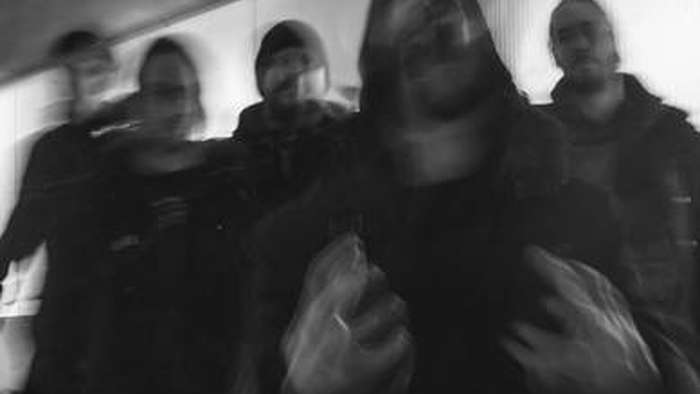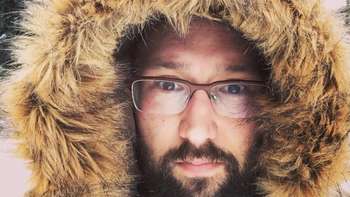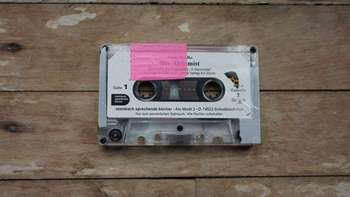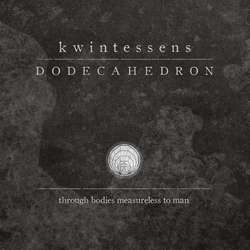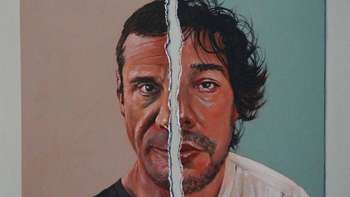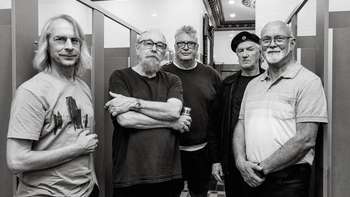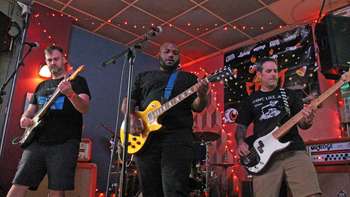After a five year wait, avantgarde black metal outfit Dodecahedron unleashed upon the world their sophomore record, Kwintessens. Catching up with Michel Nienhuis, guitarist and songwriter of the band, we discuss the evolution of their sound through the years, exploring new themes and investigating the philosophical implications platonic objects have in the band's sound, as well as their contribution to the songwriting process among much more.
Scene Point Blank: Hi Michel. Firstly thanks for finding the time to do this interview, it is much appreciated! So, Kwintessens was released five years after your debut album. Given the complexity of the new record, was all that time spent in its production?
Michel Nienhuis: Everybody in the band does several things to make a living; from time to time Dodecahedron was a part of that. We haven't been working on this album continuously. I started to develop the concept for this album in 2013 after I found the answer to the question "How can a next album be an improvement on the first one?" Answer: find ways to make the album more cohesive and consistent than the first one. Then I started to develop a musical concept around the five platonic solids and started writing. It was finished in the beginning of 2015; that's when the others came in to play and we started recording drums in the summer of 2015. The final master was submitted end of August 2016, so you can imagine we've been working on it off and on.
Scene Point Blank: How much do you feel that your sound has changed from your debut to the sophomore record? What can you tell us about Dodecahedron's evolution?
Michel Nienhuis: When such great reviews (regarding the debut) keep coming your way, it indeed evokes a certain pressure to debate how you can improve on what has already been manifested. The first album is a collection of material written over a five year time span, we were searching for our sound and definition. When I started debating what should come next, this was one of the first things that came to mind – the next album should be more of a whole, with an underlying concept that should work throughout the whole album. Create more cohesion and correlation. That's what we tried to do, and I believe that we have surpassed the debut album in that way.
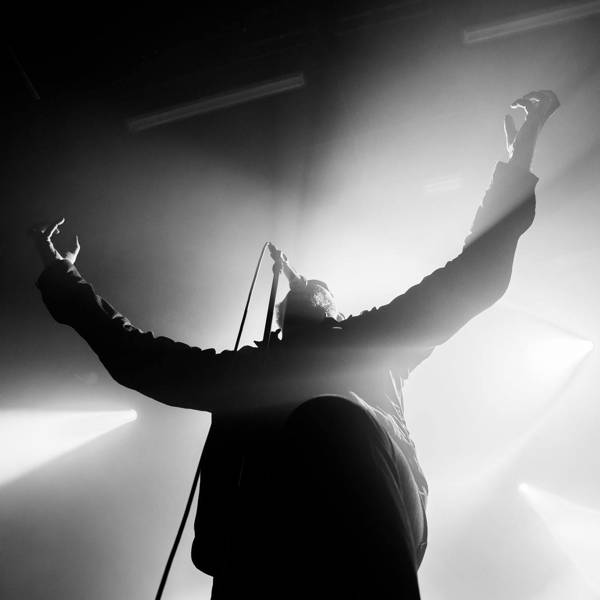
Scene Point Blank: As was the case with your debut, this album was also produced and engineered by yourselves. Has your approach to recording changed since your first album came out? Do you feel that it is an advantage recording, mixing and mastering the music on your own rather than using an engineer?
Michel Nienhuis: It is most definitely a blessing, a necessity almost, that we can do this without having to worry about booked studio time and the cost that comes with that or any other third party pressuring or having an opinion on what we are trying to do. We knew very well how we wanted to record and produce this album, not in the least place because our guitar player J. Bonis (Sonis Studio) is a professional studio and live sound engineer.
Our approach did not change very much, but our musical taste and preference has. We were looking for a little more sludge and coherence in the overall sound compared to the somewhat sterile sound on the debut album. It took some time to get there but I think it worked out quite well.
Scene Point Blank: How far do you take the DIY approach? Since you are releasing the album through Season of Mist, I am guessing the only parts you do not take care of yourself are distribution, marketing and the like. Do you feel that this allows you to concentrate solely on the important, creative aspects of producing music?
Michel Nienhuis: “All the world’s a stage, and all the men and women merely players.” Some of the roles in this play we can perform very well, others we can not. We are very glad that we found Season Of Mist as a partner to perform the roles that they play much better than we do.
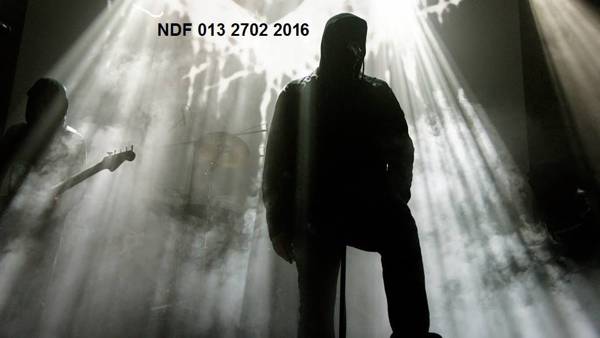
Scene Point Blank: Thematically you have moved from the mythological concepts of the debut album, in Norse mythology and Biblical references, and into the platonic solids. What was the reason for the change? Since Dodecahedron is one of the platonic solids, did the process carry an element of introspection?
Michel Nienhuis: Not introspection per sé, but a development of a concept that was necessary to move onwards. We were looking for the next step. The dodecahedron is one of five Platonic solids. These are geometrical shapes with all equal lines that can be found on different levels in nature and embody a certain sacred ratio, like the golden ratio. The first four solids are often referred to as a symbol for the elements, while the dodecahedron stands for the whole, the universe. We are trying to communicate that all encompassing feeling of the whole with our music and lyrics. I have tried to connect these five key songs with each other by recycling certain musical ideas to connect the songs musically.
The album is about the quintessence, the undeniable higher truth, where all things intertwine or however you want to describe that all encompassing experience or feeling. The concept of the lyrics deals with the hunger of man to evolve, to always want more at any cost. We took the platonic solids as a metaphor for things getting out of hand. From a primitive state to a very complex state. You can see it as a quest for enlightenment or power if you will. To be able to reach that state man is willing to kill, torture, anything to reach that state of power. As with all stories involving man it comes down to total obliteration and tragedy in the end.
"We are not concerned with any norm or scene-related development at all. Everybody can do what they want and they definitely should."
Scene Point Blank: Your sound is thickly layered, resulting in a chaotic sense, which is in part what makes you so interesting as a band. How difficult is it to translate this depth to the actual mixing of the record?
Michel Nienhuis: I think it is not easy for a mixing engineer; it requires some profound understanding of the sound spectrum and how to fit in all the ideas that you want to be in there. On the other hand it is an essential part of the sound of the band, so there’s really no other way than to get everything in place and work as long as you need to make it sound the way it should. It may have taken five years to release another album, but we did manage to make it sound exactly how we wanted it.
Scene Point Blank: As far as I know, you guys do not perform live. Is there any plan to change that, and if so do you think there is going to be some difficulty in translating your tracks for a live performance?
Michel Nienhuis: We have been performing live over the past few years, but not very often. Recently we did four shows in The Netherlands to promote Kwintessens. Since last week we started collaborating with a European booking agency, so there should be some more international shows coming up as well. It is a trial and error process during rehearsals - we try to figure out what does and what doesn’t work in a live setting, but we managed to put a good set together.
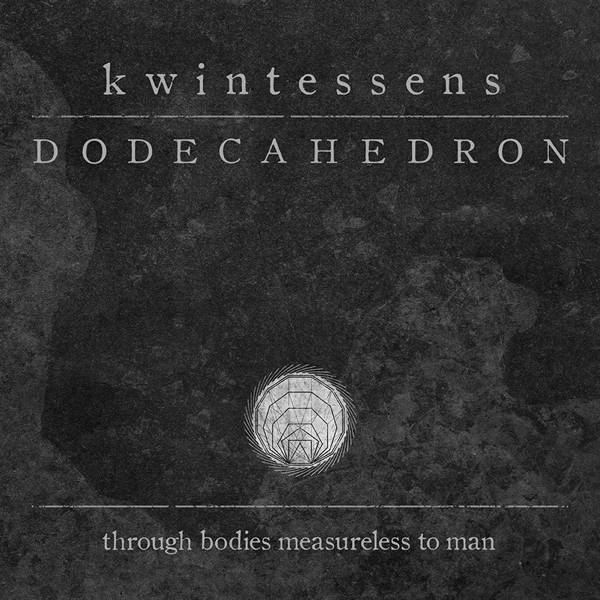
Scene Point Blank: The tracks are presented in ascending orders based on the number of the sides of the platonic solids, starting with four, and going up until 20. As you moved in the number of dimensions of the objects, did you feel you needed to add dimensions to the music? For me it felt that way, but it might have been a nice illusion on your part.
Michel Nienhuis: You are right: the layering gets denser and denser as we move forward through the tracks on the album. The numbers that can be found in the Platonic solids serve as compositional tools to me, so it is indeed an auditory development related to the numbers in the shapes, not only in layering but also in the writing of the riffs and rhythms.
Scene Point Blank: How did the songwriting process work for Kwintessens? Since each track is associated with one platonic solid, or an element, did you plan beforehand how they would sound based on their individual theme?
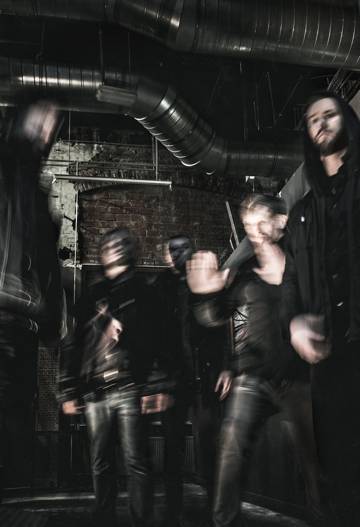 Michel Nienhuis: When I was looking for a way to make this next album more structured and cohesive I started debating what I could do musically with these five geometrical shapes. I'm interested in them because of their ratio and the numbers you can find in there, they are useful compositional tools. Per shape I would ask myself: How many sides does it have? How many lines does one side have? How many lines come together in one point? Numbers can be interpreted musically in a great range of different ways. The answers to these questions give me three numbers which drive me to be as creative as possible with this information. When you have three numbers per shape then you still have countless possibilities, so it can be a hard search from time to time. But armed with these numbers, my intuition and a general idea of how that song should sound I managed to put this album together.
Michel Nienhuis: When I was looking for a way to make this next album more structured and cohesive I started debating what I could do musically with these five geometrical shapes. I'm interested in them because of their ratio and the numbers you can find in there, they are useful compositional tools. Per shape I would ask myself: How many sides does it have? How many lines does one side have? How many lines come together in one point? Numbers can be interpreted musically in a great range of different ways. The answers to these questions give me three numbers which drive me to be as creative as possible with this information. When you have three numbers per shape then you still have countless possibilities, so it can be a hard search from time to time. But armed with these numbers, my intuition and a general idea of how that song should sound I managed to put this album together.
Scene Point Blank: At a time when it seems like post-metal and shoegaze influences are the norm for experimental black metal bands, you take a more extreme and avant-garde approach. How did you come to adapt this more extravagant take on black metal? And what is your take on the current experimental black metal scene?
Michel Nienhuis: We are not concerned with any norm or scene-related development at all. Everybody can do what they want and they definitely should. When writing the music for this album I was mostly occupied with the development of the concept that I came up with, to make the most fitting and non-compromising representation of that concept and next to that a more coherent band sound. It is joyous and interesting to me to experiment with extremities but in the same process try to make those work in favor of a general idea.
Scene Point Blank: There was quite a wait between the debut and the new album, so my question are we going to wait another five years for the next chapter? Is there any music that you are working on? And are you participating in any other bands that take up some of your time?
Michel Nienhuis: Everybody in the band works in the music industry one or the other way, we are all occupied with several projects. Besides that: in our opinion it is not a good idea to rush into new releases or representations unless they bring something fresh to the table – and usually that takes a bit of time. The black arts cannot be rushed.
